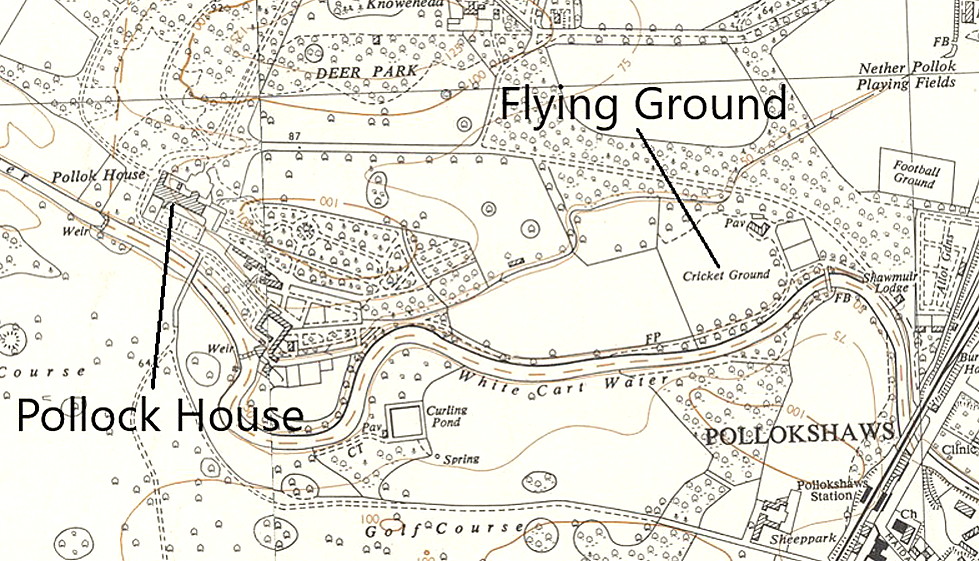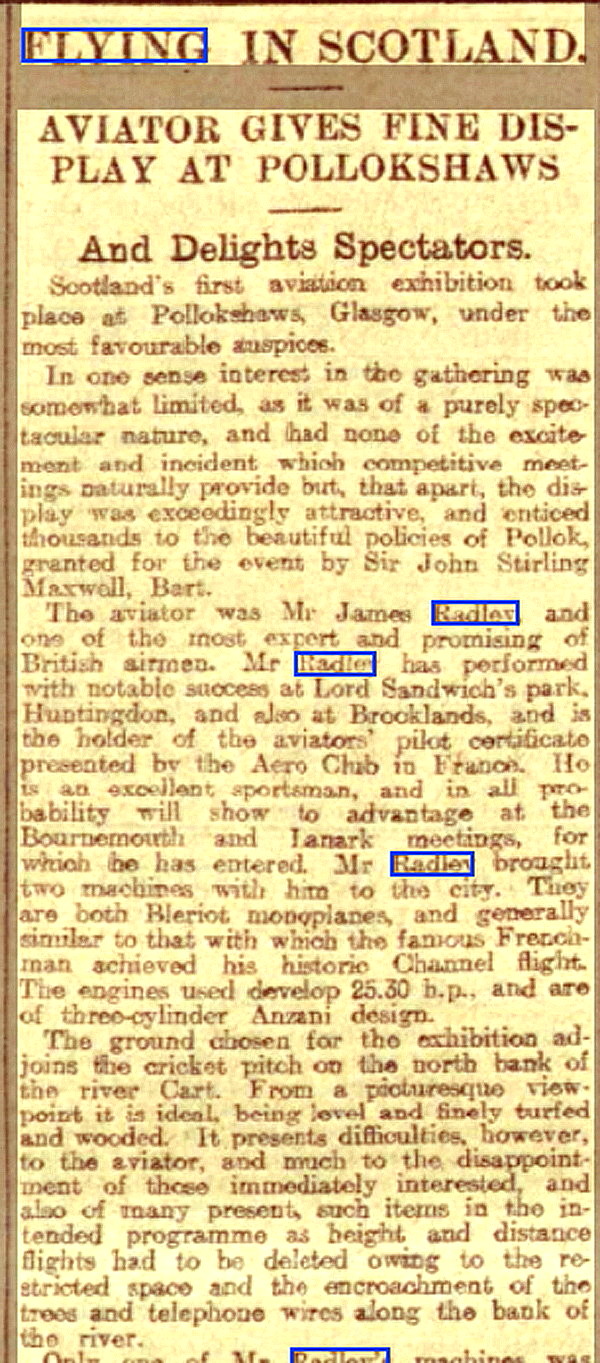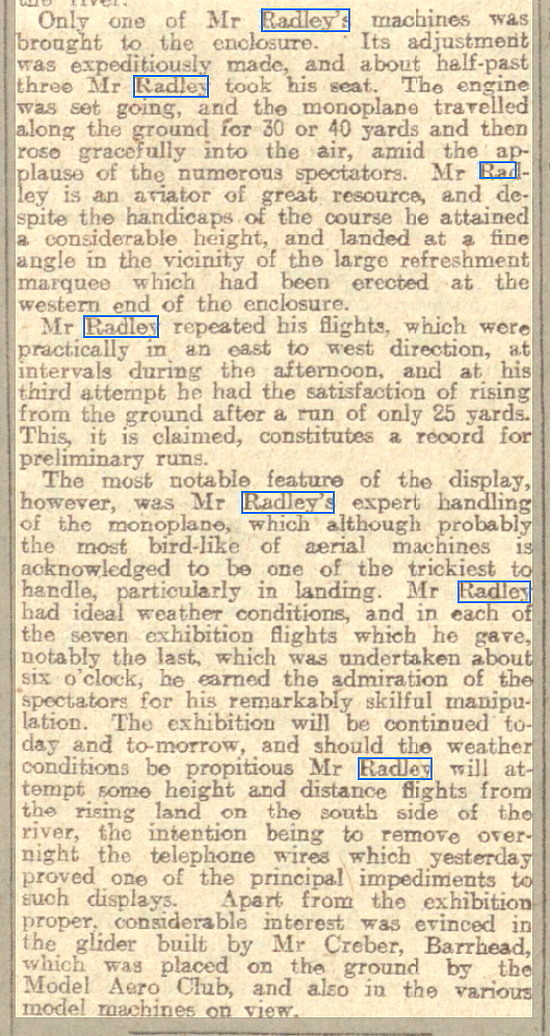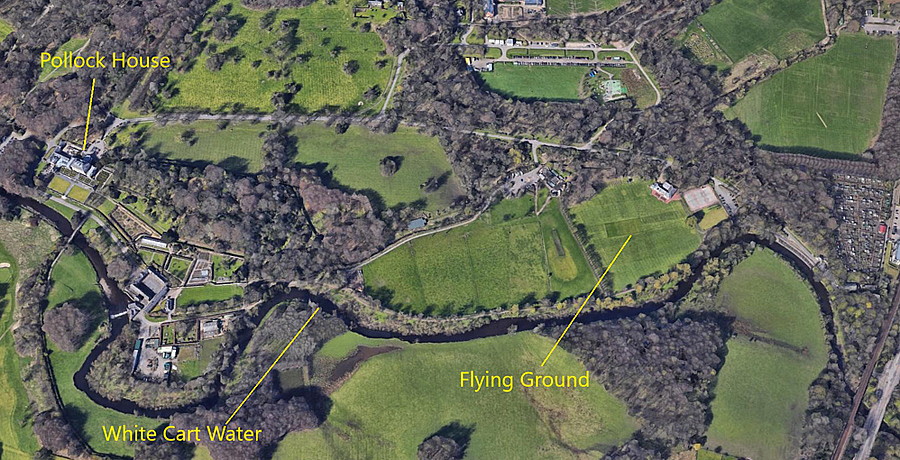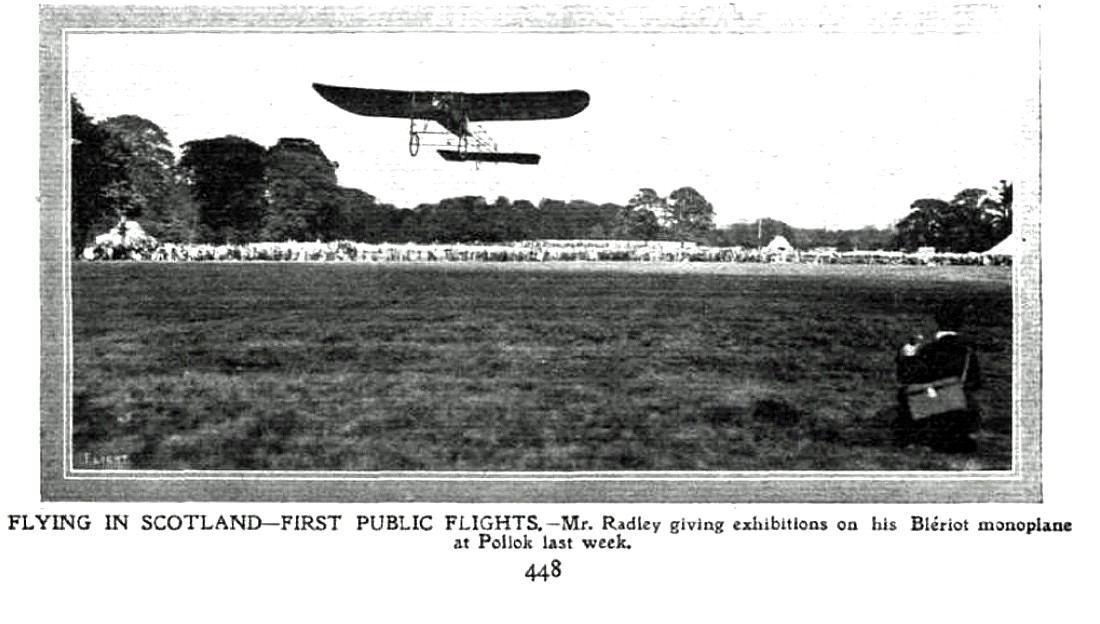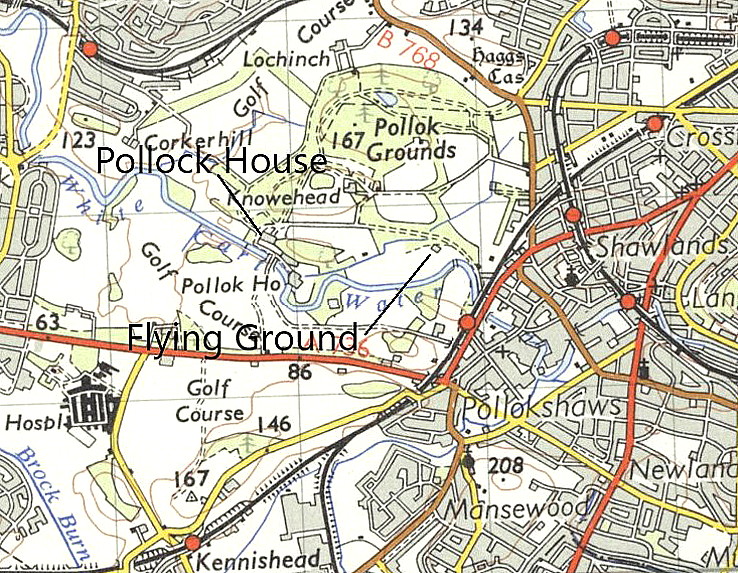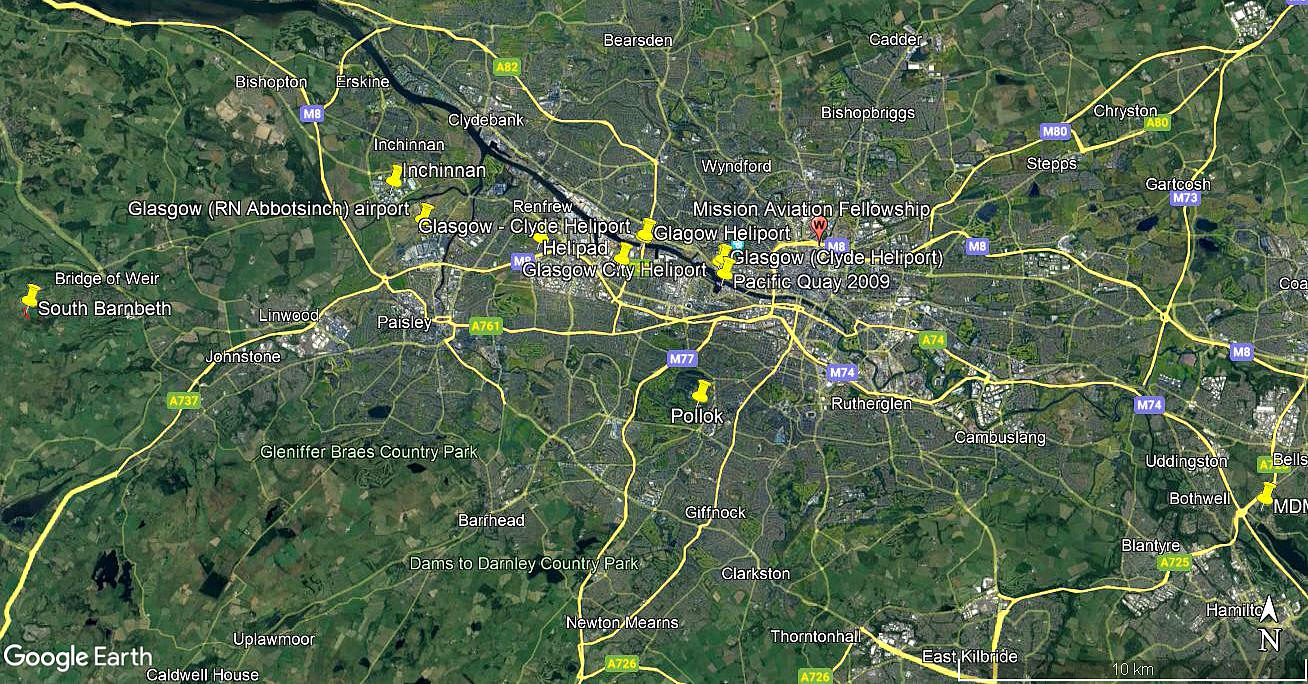Pollok
POLLOK: Temporary aerodrome (Aka POLLOKSHAWS)
Operated by: Mr James Radley
Location: In the SE quadrant of what is now the Pollok Country Park, which is roughly speaking about 3nm SW of Glasgow city centre
NOTES: In early June 1910 the famous aviator James Radley was engaged to perform a series of flying displays in a park area then privately owned. It appears he brought two Blériot monoplanes with him, but used only one of them which was assembled on the site of the display. Typically in those days the machines would be transported over long distances by rail, then transported by road for the shorter trip to the actual flying site.
Reading the two accounts below it is probable he managed to make brief displays of flying on the 2nd and 4th June, before crashing his machine, causing considerable damage to the machine but without serious injury to himself. In those days aviators chose to mostly fly early in the morning or in the evening when the prevailing winds tend to be much lighter. However of course, large crowds of spectators want to attend an event more aligned with the hours most sporting events took place - when any winds are much stronger and more turbulent. This event being a case in point to illustrate the risks an aviator had to face.
It needs to be appreciated just how frail those early powered aeroplanes were. Not only did they have engines of minimal power to get airborne, (and not very reliable either), they lacked control authority, especially in roll, (which was mostly achieved by flexing the outer section of the wings as few had ailerons), and little was known about how to achieve structural strength and flexibility throughout the airframe.
Many serious if not fatal crashes resulted in cases of lack of control authority, and indeed, major structural failure. And of course, although now mostly designed out today to cope with most foreseen circumstances, the risk still exists.
A MICHAEL T HOLDER GALLERY
Note: The article above was published in the Dundee Evening Telegraph on the 3rd June 1910.
Note: The picture and article were published in Flight magazine on the 11th June 1910.
The area view has been added from my Google Earth © database
We'd love to hear from you, so please scroll down to leave a comment!
Leave a comment ...
Copyright (c) UK Airfield Guide















